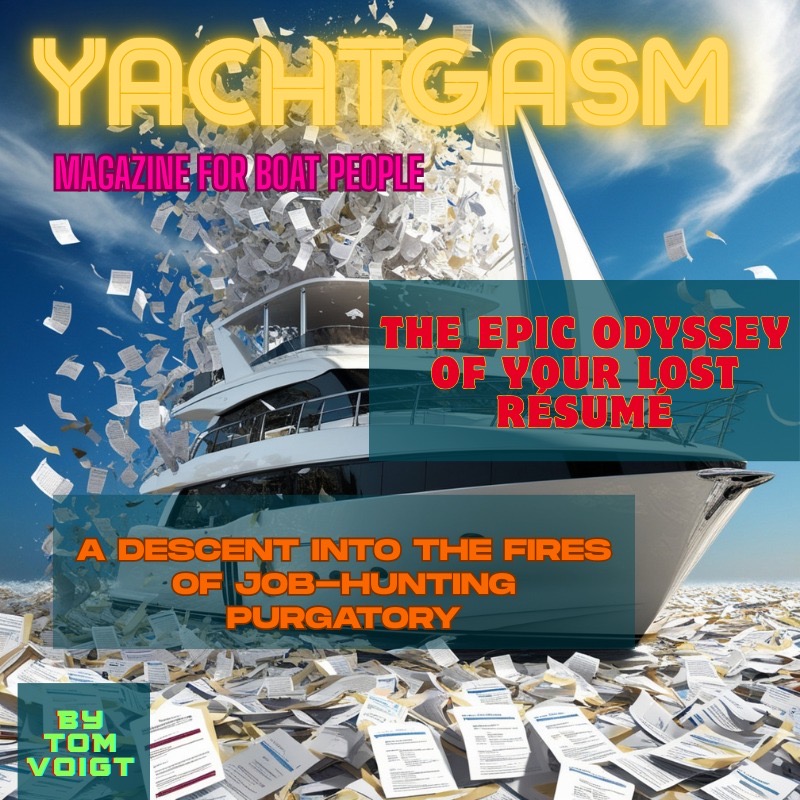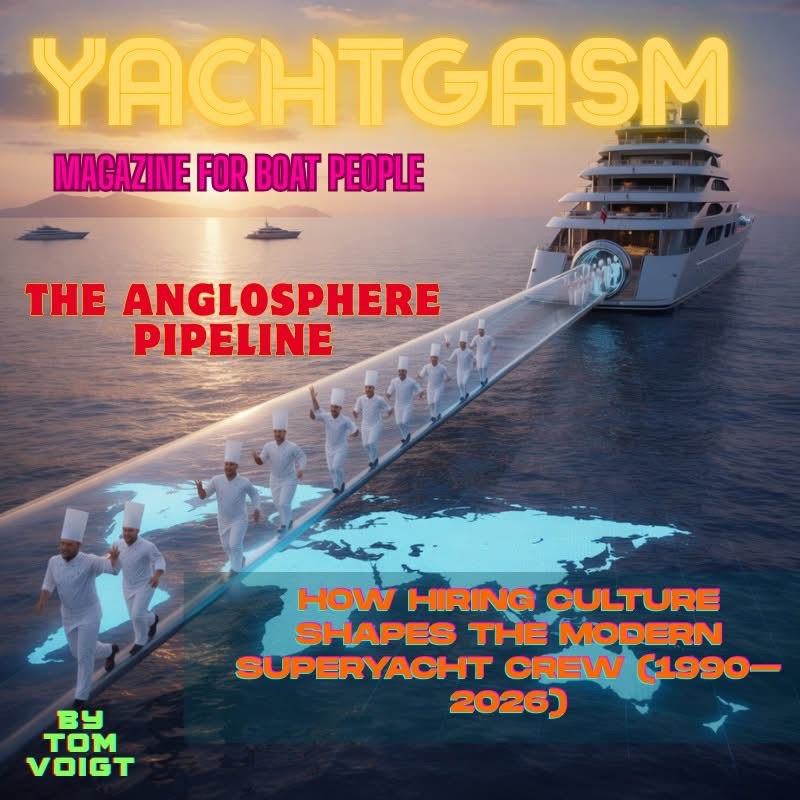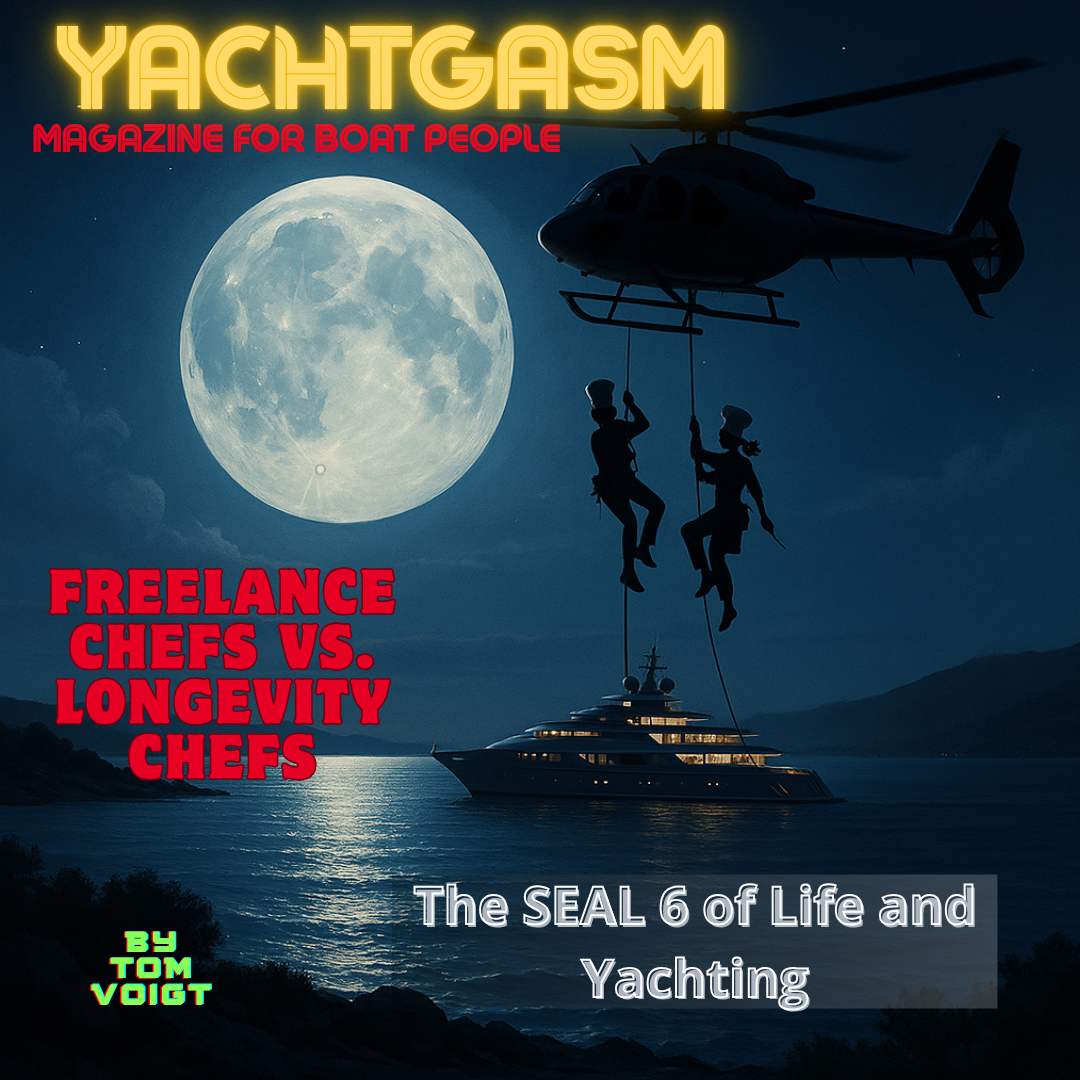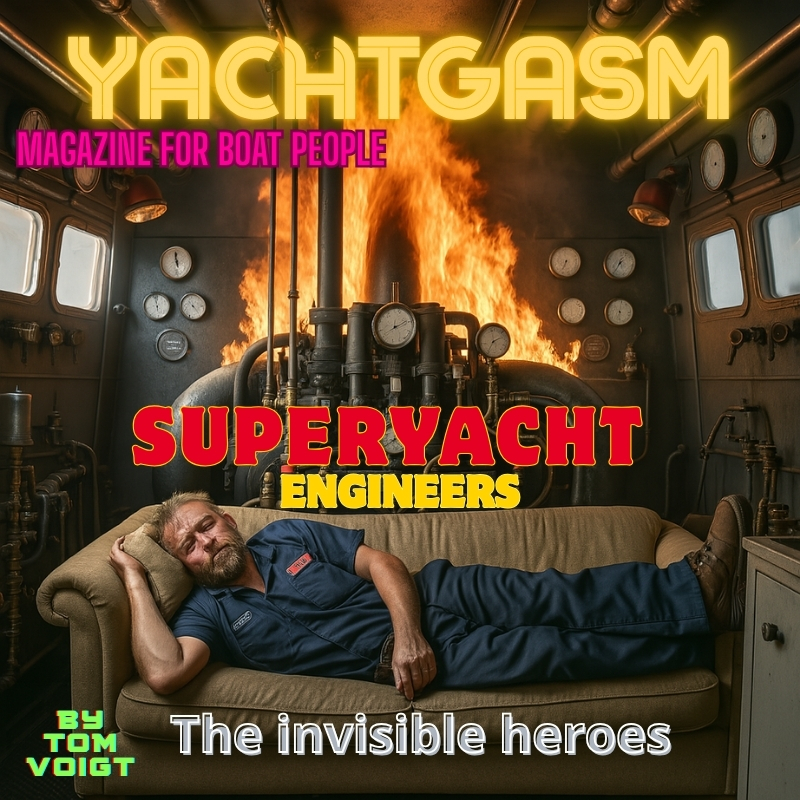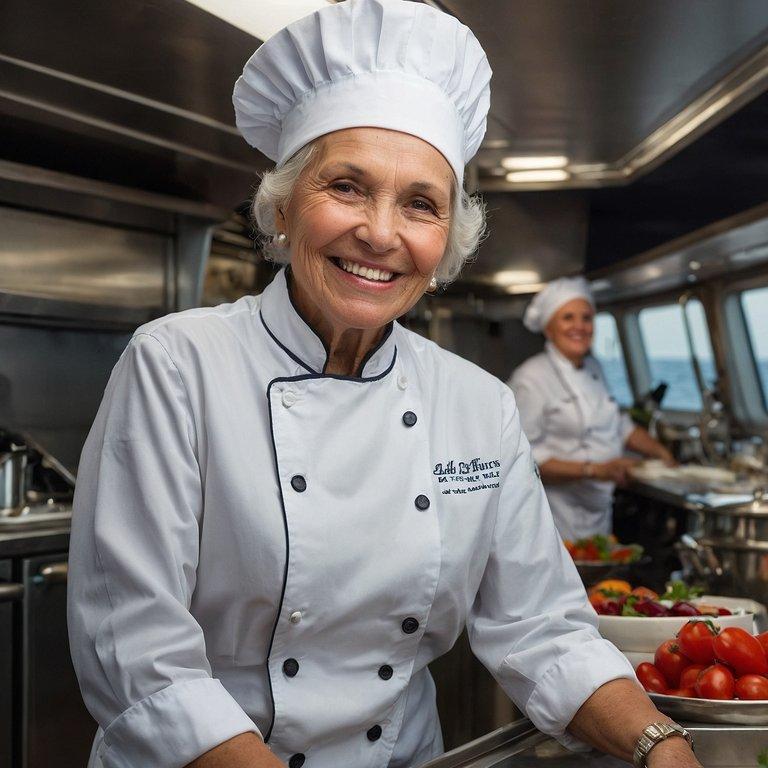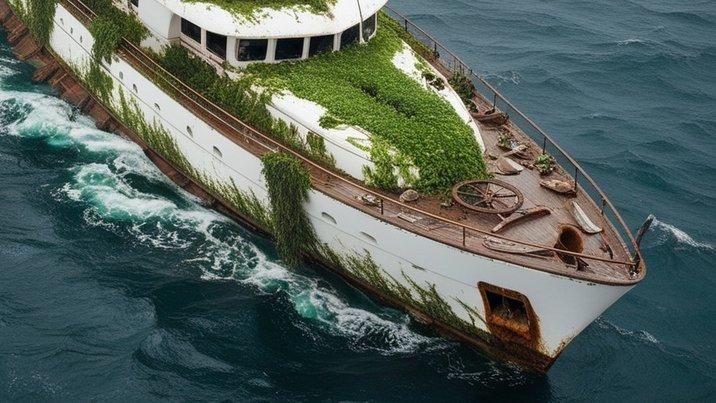The Epic Odyssey of Your Lost Résumé
by Chef Tom Voigt. #26/0024.
The Epic Odyssey of Your Lost Résumé:
A Descent into the Fires of Job-Hunting Purgatory
By Tom Voigt
Ever wondered what actually happens to your beautifully polished résumé (yes, that résumé — the one some ex-yachtie “CV guru” charged you for, basically stitching together a Word or PDF file between watch shifts and calling it professional) the moment you smash that “Send” button?
Let me paint you a picture. A big one.
Imagine a massive field full of grain silos—except they’re not filled with corn. No. They’re filled with résumés. Yours, mine, everybody’s. All packed in there, waiting to “shine”… or, more realistically, waiting to develop a healthy layer of dust. These silos are the black holes of our professional dreams, sucking every hope into quiet oblivion.
And speaking of outer space—sometimes sending your résumé feels exactly like launching it toward Mars. You know it’s floating out there somewhere, drifting through the cosmic void, but good luck getting it back. NASA has a better chance of finding alien life than you have of getting a reply from your “dream job.”
If résumés ever do make it back to Earth, they fall like biblical rain over a single job posting—thousands of them crashing down in a blizzard of desperate ambition. Somewhere in that storm, your tiny résumé is just trying not to drown. It’s like playing “Where’s Waldo?” but with higher stakes and absolutely zero cute illustrations.
And those résumés that get filtered out?
Picture a giant celestial toilet flushing them into the HR underworld—your hopes, your dreams, swirling away into the eternal septic tank of corporate recruitment. Farewell, sweet résumé. We barely knew you.
Crew agents and recruiters — our industry’s gatekeepers (or gate-blockers?)
Now let’s talk about crew agents and recruiters—the people supposedly guiding our “career paths.”
Are they overwhelmed, undertrained, or just cruising on autopilot? Hard to say. Half the time they’re sipping coffee in existential silence, staring at their screens like they’re trapped in a slow-motion horror film, pretending to process the daily avalanche of CVs—paper, pixels, whatever gets hurled at them before lunch.
Here’s the uncomfortable truth:
Most of them don’t really read CVs.
Not properly. Not deeply.
It’s basically speed-dating with résumés.
Maybe it’s a machine with the empathy of a toaster scanning everything for keywords and tossing out half the field. Or maybe—on a brave day—a real human glances at your life story, squints, sighs dramatically, and wonders why they ever joined recruitment in the first place.
And let’s be honest:
Matching candidates should be like scouting elite football players.
You’re not just looking for someone who can kick a ball—
you’re looking for the one player who sees the field, shifts the game, and wins the match.
But here’s what actually happens:
The “scout” doesn’t notice the talent.
The recruiter skims past the one skill the client is practically begging for.
And plop—your CV drops straight into the cosmic toilet bowl of missed opportunities.
Talent lost. Time wasted.
All because nobody read the damn thing properly.
Welcome to the comedy club of job platforms
And then there’s the pure comedy of job platform requirements.
Some agents still demand:
“Upload your CV in Word only — PDF not accepted.”
Really? In 2025?
Imagine a solid candidate who designs a clean, modern CV in Canva.
Looks great.
Professional.
Polished.
Except—oops—Canva doesn’t export in Word.
So the platform rejects the file.
The agent can’t process the application.
And the yacht never even gets the chance to hire the candidate.
A career dead on arrival…
not because they weren’t qualified, but because they didn’t have a .docx file from 2009.
Sad, isn’t it?
And when replies do come in…
Either they show up never,
or they arrive so late you’d think your résumé stopped for a cappuccino on the moon.
By the time someone actually emails you back,
you’ve forgotten you even applied and you’re already on Plan Z: professional cat-sitting.
And then we get the magical mismatched job offers.
Why do men get job ads written clearly for women, and vice versa?
Did the recruiter screw up?
Or is AI just running an elaborate cosmic prank on all of us?
And honestly—do these jobs even exist?
Or is the whole ecosystem just a giant data-harvesting trap, feeding our résumés right back into those silos in the sky?
The final truth
So next time you hit “Send,” remember this:
Your résumé is about to embark on an odyssey more epic than anything Odysseus ever survived—just with a much lower chance of a happy ending.
(Like most of my observations, this comes from decades of conversations with colleagues about all the strange wonders of the yacht industry.)

